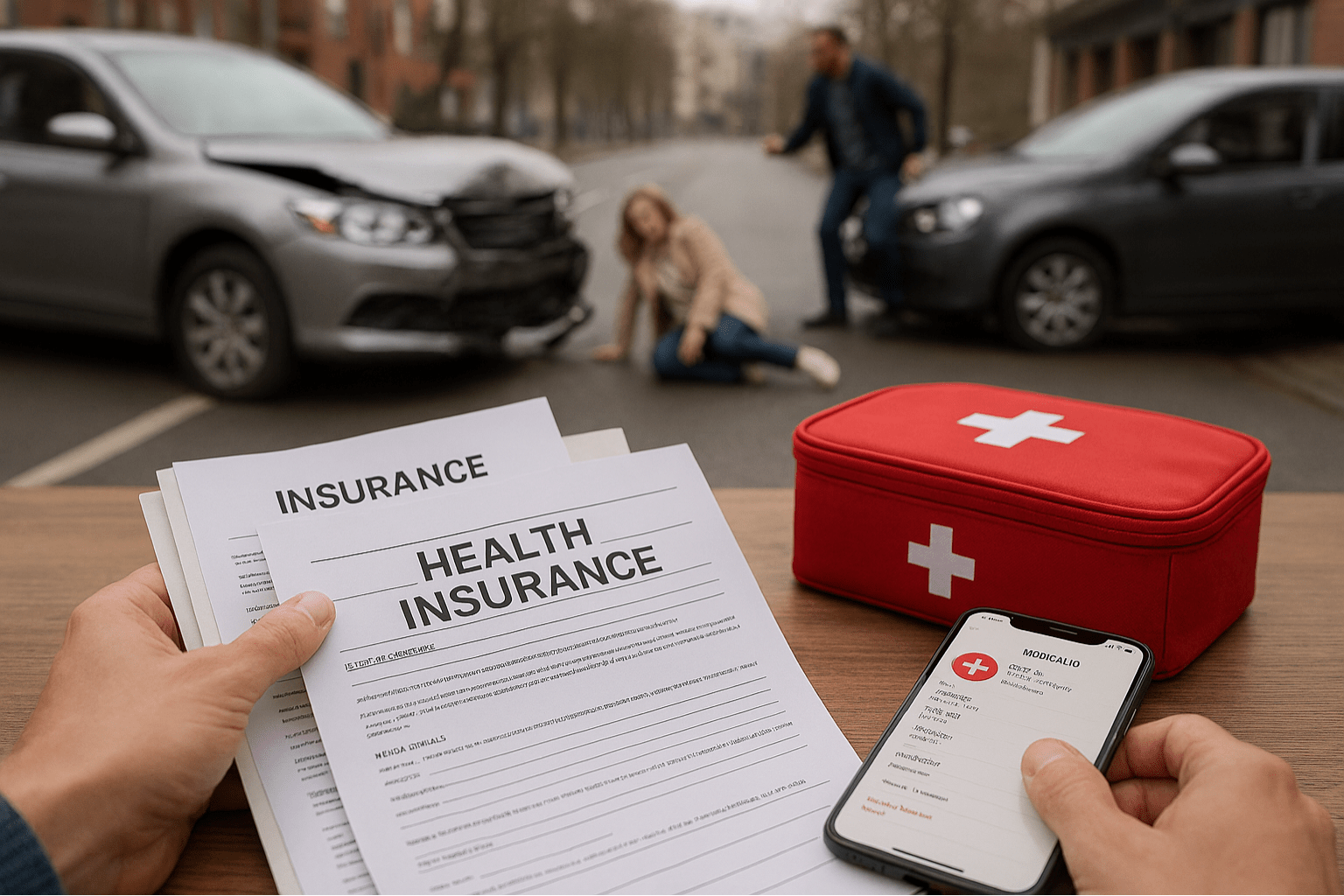Pre-Accident Planning: Stay Ready for Emergencies and Save Time
August 27, 2025

Nobody wakes up thinking, “Today I’ll have an accident.” But they happen. Sometimes when you’re driving, sometimes when you’re just making dinner. Suddenly, paramedics are asking questions: Any allergies? Medications? Who do we call?
If that info isn’t handy, things slow down. And in a crisis, slow is the last thing you want. I’ve personally seen families scramble through wallets and phones looking for details. It’s stressful and avoidable.
That’s why it makes sense to set up your health and insurance info now, not later. It doesn’t take long, and it could make all the difference in a critical moment.
What is Pre-Accident Planning?
Most people don’t really think about pre-accident planning until something goes wrong. Honestly, you probably haven’t either. It’s basically just having your key health and insurance info ready before an emergency ever happens. Nothing fancy. Just the stuff that can actually save time.
So what should you have? Here’s the quick list:
- A short record of your medical history.
- The medicines you take and how often.
- Any allergies doctors should know about.
- Names and numbers of people you’d want called first.
- Your insurance info, so care isn’t delayed.
Imagine this: you’re in a minor car accident and can’t talk. Paramedics show up and need to know if you’re allergic to a medication. If that info isn’t ready, they’re guessing. But if you’ve planned ahead, it’s right there. Seconds matter. And really, that’s the whole point, making sure first responders and doctors can help you as fast as possible.
Using Digital Tools for Emergency Preparedness
You probably keep most of your important info scattered—papers, cards, maybe even a few notes on your phone. But when an emergency hits, digging through that stuff wastes precious time. That’s where digital tools come in. Secure online vaults let you store all your health and insurance details in one place.
The best part? Only authorized people, like family, doctors, or first responders, can access it when it’s needed. Even if you can’t talk or move, the right people can get the info fast.
Why use a digital vault? Well, there are a few big advantages:
- Quick access – no more shuffling through papers or cards.
- Less paperwork – everything is in one organized spot.
- Safe backup – your info is secure, and you won’t lose it.
Honestly, setting this up doesn’t take long, but it can save a lot of stress and make sure you or your loved ones get the right care right away.
Real-Life Examples
Emergencies can happen when you least expect them. I once read about someone in a car mishap who couldn’t speak. Luckily, their family had a digital vault with all the key info, medical history, allergies, and medications. Paramedics got it fast. No guessing, no delays.
Another story: a senior fell at home. Their family had health and insurance info ready. EMTs didn’t waste time searching. Care started right away, and things went much smoother.
Studies show having info ready can cut treatment delays by up to 30%. That means fewer mistakes, faster care, and less stress for everyone. Honestly, most of us forget to do this until it happens. Spending a few minutes now could save a lot of trouble later.
Steps to Get Started
Okay, honestly, starting with pre-accident planning isn’t rocket science. Most of us just forget about it until something happens. But if you take a few minutes now, it can save a lot of panic later.
First things first, grab all your important stuff. Your medical history, medications, allergies, emergency contacts, insurance info, just toss it in one place. Trust me, you don’t want to be hunting for papers or digging through apps in a rush.
Next, find a safe spot to store it. Could be a digital vault, an app, whatever works for you. Just make sure only people you actually trust can get to it.
Then, make it easy to read. Like, sections for meds, allergies, contacts, insurance, whatever makes sense to you. Don’t overthink it.
And hey, don’t forget to update it. New meds, changed contacts, insurance stuff, small tweaks make a big difference when time is ticking.
Honestly? It might feel like a tiny thing. But having this ready can make everything smoother if something goes wrong. A few minutes now could seriously save you a lot of stress later.
Conclusion
Okay, so pre-accident planning might sound small, but honestly, it can really matter when stuff hits the fan. Like, having your meds, medical history, allergies, emergency contacts, and insurance info all ready and easy to grab can save you a ton of stress. Maybe even a life, who knows.
And here’s the thing, you don’t need to wait. Just start. Grab your info, toss it somewhere safe, and make sure you can actually get to it. Peek at it every now and then, update stuff if things change.
And, well, emergencies don’t give warnings. Every second counts. Being ready can really make a difference. A few minutes now could save hours later, or worse. Seriously.
